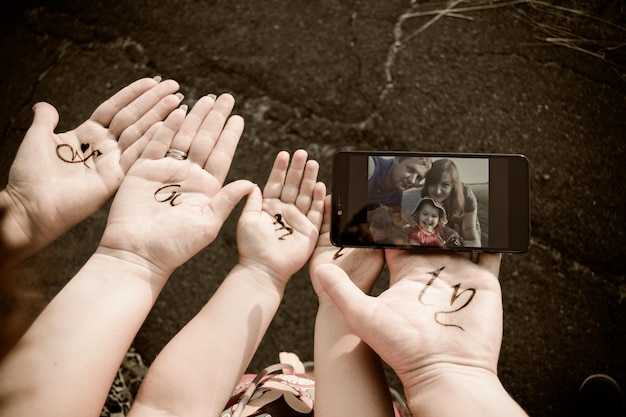When an entire family turns on one of its members, it is a profoundly harmful form of abuse. Sometimes this takes the shape of scapegoating, where you are blamed for troubles you never created. Other times it’s straightforward bullying and cruelty. The scars left behind run deep. Even when you understand intellectually that the abuse reflected the abusers’ problems and not your worth, and even when you’ve worked hard to build a decent life, you can still feel cut off, ashamed, and undeserving. If this describes you, please accept that other people’s mistreatment does not define who you are — recovery is attainable. Today’s letter comes from a woman who will be called Amelia, and she writes: Dear Crappy Childhood Fairy, I’m struggling to connect with people. As a child, when I began to think for myself and voice opinions that clashed with my mother’s — around age ten — she reacted with rage because I was outspoken. I’ll mark things to revisit on a second read, but first let’s look at what Amelia reports. She says her mother would sometimes ignore her for weeks, physically distancing herself and refusing affection, calling her a traitor if she didn’t side with her against others. Just three weeks ago, her mother stopped speaking to her because Amelia wouldn’t join in badmouthing someone. One sister was visibly pleased about that. That sister has long been emotionally and at times physically abusive toward Amelia, telling her at twelve that nobody would like her and, over the years, predicting that everyone — including romantic partners and coworkers — would abandon her. They built a pattern of isolating Amelia: yelling whenever she had friends, claiming those friends only used her, and deriding her for not cutting them off. Now she has no friends. Although she does attend a couple of weekly groups, the repeated rejection has left her frozen; when she’s among potentially friendly people she cannot force herself to speak and retreats entirely. She would like to date but doesn’t; she’s underpaid at jobs and her sisters reacted with fury whenever anything positive happened for her. So now her life feels boxed-in, like she watches the world being vibrant without her. She tried a 12-step program once and it was a terrible experience, so she left. Where does she start? How can she reclaim the life she feels was stolen from her, now at age fifty-six? Amelia — this was abuse. Your family hurt you, and their ganging-up made the damage worse. If only one adult had been cruel while others were kind, you would have had some protection. But with your mother and sister together, the gaslighting and messages that you were worthless would be extremely difficult for a child to resist. They may fit many clinical descriptions; their behavior looks cruel and in places sadistic. It’s important that you’re likely not in touch with them now — I’m someone who doesn’t lightly recommend cutting people out of one’s life, but these relatives are a clear exception and, in my view, should be cut out. You have awareness that their behavior was wrong and undeserved, but you are stuck in a social freeze, a withdrawal that has become entrenched. The courage it took to write this letter matters — you say you can’t speak to people and yet you shared this with me and with everyone here. To everyone reading who resonates with Amelia’s experience of being bullied, shut down, alienated and stuck: please leave an encouraging comment for her. It helps to know you’re not alone — these reactions are normal responses to an abnormal and unjust childhood. You described the pattern clearly: you want relationships, you attend groups, but you feel so rejected that you can’t bring yourself to talk. Carrying deep fear that you’re unwanted often becomes self-fulfilling: it produces an energy or “vibe” that others pick up on. I don’t know exactly how you present yourself, but a common response to persistent rejection is to shrink — dressing drably or utilitarian, avoiding anything that draws attention, and essentially trying to fade into the background. If that rings true, one practical early step is to treat yourself to some clothes — thrift stores are affordable and fun — and choose colors and fits that feel pleasing and present you in a way that lifts you. Even modest changes in appearance can signal to others that you’re open to interaction, and can help you feel a bit braver. Vulnerability in connecting is a near-universal trigger for people with childhood trauma, so avoidance is understandable, but it also keeps you stuck. You mentioned that a 12-step program was a bad experience once; that happens — some meetings are toxic, others are life-changing. There’s something powerful about a room of people who have chosen to work on themselves together: they understand, usually for free or minimal cost, and you can simply sit and listen at first. For many, those fellowships provide consistent support. They don’t have to be “12-step” specifically if that label feels off; you may qualify for groups like Al-Anon or Adult Children of Alcoholics (ACA) or other recovery communities. Beyond meetings, learning about complex PTSD (C-PTSD) was pivotal for many people’s healing; understanding what’s happening in your brain can free you from self-blame and open avenues for recovery. The writer here has used these supports for years, sometimes deeply engaged and then drifting away — that happens to people — and yet the structure helped enormously over time. Healing also involved discovering one’s authentic self: being allowed to blossom into who you truly are, despite the old wounds. That very real self is what connects with others and makes your voice matter. To find that life, you’ll need to shift out of the defensive pessimism that protects you from contact by convincing you it’s safer to withdraw. If you don’t have tools to calm your nervous system in social situations, people will remain triggering; the easiest avoidance strategy is isolation, but it’s lonely. Keep trying: there are therapists, groups, and meetups, though be selective — the right match matters. If you grew up with a narcissistic parent, scapegoating is common. The scapegoat child is blamed for family dysfunction, whether true or not, often through outright accusations or underhanded put-downs, neglect, and emotional exclusion. The damage doesn’t necessarily stop at adulthood. That brings us to another letter, this one from a woman who will be called Ava. She says she has been following the videos, doing the daily practice, and each day has given her a little more hope. She writes that her father moved between her family and a girlfriend hundreds of miles away and left right after she was born. The family joke was that he “took one look at me and left.” Her mother resented her, saying everything had been perfect before she was born, and Ava became the family scapegoat. She grew up needing to people-please to survive. She was sexualized at a young age, had a stepfather who drank and did not work, and her mother worked constantly and escaped by going out, leaving Ava alone much of the time. Before her mother’s death some years ago, six months prior she apologized, saying she was sorry they had never gotten along and that it was her fault for not wanting a relationship with her — a painful but clarifying admission for Ava. The second bittersweet “gift” was that her mother died relatively young (Ava was thirty-three when her mother died at fifty-nine), giving Ava a chance to live part of her life without the family’s head games. But things did not improve as much as she hoped. Family dynamics continued: brothers at odds, a sister who was the “golden child,” and Ava remaining the dismissed youngest with no voice. Then last Thanksgiving, living in Europe now and bringing her boyfriend and his parents to visit, her brother volunteered to host. She assumed it would be less work and that the presence of her boyfriend’s family would be positive. Instead, her sister targeted her all day. Her boyfriend’s family was shocked and kept asking why the sister was so mean; Ava had no explanation because the treatment was familiar and seemed normal to her sister — painful to be exposed in front of outsiders. Later, the sister acted as if nothing had happened and, behind the scenes, slander continued. Ava disconnected from her brother, who had already distanced himself because his wife didn’t want him around Ava, and she respected his desire for peace. She tried briefly to figure out how to repair things, realized she’d been codependent, studied family systems therapy, and eventually saw she had been trying to fix her sister for her. Another brother has been distant since childhood. Ava recognizes the generational chain of dysfunction — their parents came from damaged backgrounds as well. She’s read about scapegoating and understands what is usually advised: don’t try to reconnect because it simply repeats the pattern; they’re unlikely to accept your perspective. She feels both a tendency to give and also used by her sister — a repeated pattern where, when her sister is in trouble, Ava becomes her closest friend and caretaker, only to be discarded when a new partner appears. The nieces and nephews are repeating the pattern and Ava has been scapegoated by that generation too. Although she understands this intellectually and has spent fifteen years in 12-step groups, been married twice, and done a lot of work, she wonders: should she attempt to reconnect with her sister? Should she confront the name-calling and blame? She hopes her question helps others who are asking the same thing. Ava — your family has not treated you fairly. Let’s review your story again briefly. Your father’s absence and the mocking “he left because of me” gag were cruel. Only people who are emotionally shut-down think that kind of joke is funny. Your mother’s resentment and the “everything was perfect before you” line are vivid markers of scapegoating and rejection; they placed responsibility for her hardships onto you. You were left to fend for yourself, sexualized, and raised under a drinking stepfather. The apology from your mother just before she died — that she didn’t want to be close — was rare candor. That clarity was a gift because it confirmed you weren’t imagining the rejection. The other gift was the chance to have years away from those dynamics after her death. The hope that everything would improve after she died is understandable; for many that hope is disappointed. The family patterns often continue because the emotional legacies persist. You deserve to be recognized, heard, and respected. You do have a voice — you are using it here and people are listening. The Thanksgiving incident must have been devastating, especially with guests present. It’s normal to feel wounded when outsiders witness the mistreatment you’ve long tolerated. That reaction shows you’re human; you were trying to include people who matter to you and instead they were hurt by being witness to the cruelty. Your brother’s willingness to host might have been sincere but also naive about how the day would actually go. It’s common to hope for change and to be let down. Sometimes family members who hurt us were themselves hurt and never learned to stop hurting others, but that doesn’t excuse them. Scapegoating is a typical family pathology; scapegoated kids often grow into adults who either replicate unhealthy relationships or, with insight and support, choose a different path. You have insight: you studied family structures, you recognized codependency, and you have experience in recovery groups. That understanding gives you the power to make different choices. Don’t assume you’re at fault. One practical stance is to stop pursuing the relationship in the way you always have. Don’t keep offering yourself as the fixer. Save that kind, energetic, connecting part of you and redirect it toward yourself and toward building new, healthier relationships. That means creating friendships and possibly a partnership where you are seen and valued, so you can internalize a new, kinder sense of self. Loving yourself is hard when you weren’t given love as a child; a useful approach is to practice love outwardly — love others and build mutual, appreciative relationships — and let that reflection teach you to value yourself. Your capacity to keep trying with the family shows that something in you wants connection; that’s not a flaw, but a sign of resilience. Think of it like a bird repeatedly flying toward a window; stop hitting the glass. For now, pause active pursuit of reconciliation. Let them come to you if they ever truly change. If a family member seeks help, works a program, and genuinely apologizes, then consider a conversation — but insist on real work and accountability, not half-hearted soft apologies. Practically, take a break for at least a year or two and observe whether anything really changes. Use that time and energy to find people who nurture you. Holidays are important; if family continues to be harmful, create new traditions with friends or loved ones who lift you up. Now, a different but related topic: procrastination. Have you ever known you should do mundane things — get to work on time, finish a project, brush your teeth — and still been unable to make yourself do them? Everyone procrastinates sometimes, but for those who suffered childhood abuse and neglect, procrastination can become a life-robbing paralysis: day after day stuck in the same rut. It used to be a major problem for many, until they learned strategies to break it. First, reframe procrastination: it isn’t mere laziness. It behaves like a parasite on your will, undermining your sense that your life matters and deserves attention. It’s more accurately described as paralysis, an inability to take positive action for yourself. This manifests in small ways (endless internet browsing when work awaits) and in catastrophic ways (letting important bills go unpaid). Left unchecked, procrastination can wreck relationships, careers, finances, and health. Why can’t someone act? Because real accomplishment is difficult, and that difficulty collides with trauma-related exhaustion: depression, emotional dysregulation, overwhelm. It can feel like you don’t have bandwidth to take on anything extra beyond bare survival. That feeling is valid, but it also becomes a self-reinforcing loop: stress makes tasks harder, avoidance increases stress, and so on. People without childhood trauma often cannot imagine how draining everyday life can be for those who carry complex PTSD. It is tiring to leave the house, to hold a schedule, to speak up, to make money. Yet the greater suffering is often caused by not doing these things. The remedy isn’t always to give yourself permission to procrastinate. Sometimes the best antidote to stress is to convert the chaos of unfinished things into action: tidy the to-do pile, reply to those overdue emails, fold laundry, schedule a haircut, open the mailbox. Small acts of follow-through build a sense of integrity and reduce the brain’s background stress. If you’re stuck, start tiny: if you’ve been skipping brushing your teeth, do it tonight just to practice a tiny success. Tomorrow, wash a load of laundry, then if you’re feeling good answer an old email. Moderate daily actions create momentum; integrity is formed by repeated small follow-throughs. Beware treating paralysis as self-care; that’s often an excuse that leads to self-sabotage. If you find your mind looping with thoughts that “people are against me” or obsessing about past hurts, ask whether you might actually be angry at yourself for not taking the actions you intended. For those unsure whether C-PTSD is behind their self-defeating behaviors, there are quizzes and free resources available to help clarify. Most people don’t want the blunt truth, but the path out of chronic procrastination is action — taken in reasonable proportion to your current capacity. When deep in avoidance, don’t wait for perfect motivation. Do one small thing now. The cumulative effect of tiny, consistent steps over time generates real change. The author here shares that publishing videos for the Crappy Childhood Fairy project is both a joy and a lot of work: each video can take many hours of preparation. The hardest part is starting. There were days when the smallest household chores felt irresistibly interesting as a distraction. The turning point was committing to a purpose and honoring it: setting intentions and following through. That commitment to serve others and to do meaningful work is integrity, and it bolsters self-respect. Procrastination is sometimes an attempt at stress relief, imagining that delaying will somehow restore energy, but in reality the stress of unfinished business compounds. The way forward is to create order out of chaos and take manageable actions. Action does not always guarantee success, but it brings liveliness and possibility. The writer relates how the idea for this channel lingered for decades until finally investing in a seminar and making the leap, which launched a new life stage of purpose and contribution. Starting required a financial outlay and risk, but it ended the feeling of life simply passing by. Small, committed steps changed the trajectory. If you have been holding back from letting your light shine, your spirit will respond to steady, achievable actions. They needn’t be heroic; they must be consistent. Over time those tiny choices open doors to unexpected opportunities, relationships, and a sense of being in the world. Your strength is in doing. Finally, sibling abuse is often overlooked when people talk about childhood trauma. While parents are frequently the primary abusers, siblings can be profound sources of harm too, particularly in households where parents neglect or abuse children and then single out one child as the scapegoat. These dynamics can persist for decades. What happens after sibling abuse, and how do you move forward? A letter arrives from a woman who will be called Jeie. She observes that sibling-caused trauma doesn’t get as much attention as it should. She’s returned to the fairy pencil she lost on a plane and plans to mark items on a second read. Here’s her story: she’s the oldest of three girls. Her mother had her at nineteen, unwed in 1959, and that circumstance brought shame onto the mother — which the mother projected onto the child. The mother was emotionally immature and likely narcissistic, and Jeie recalls being told by her grandmother at an aunt’s house that the man she called “Dad” wasn’t her biological father; her mother refused to discuss anything about her real father. When Jeie was eighteen months old, her mother married a man called Jack, and Jack and the mother had two daughters, Mary and Catherine, three and four years younger. The younger girls were treated completely differently: they had multiple outfits while Jeie had one pair of pants; they had shoes while she didn’t. As they grew, the disparity continued; Mary received a car that Jeie did not. Jeie remembers being left sitting on the stairs of a department store while her mother bought clothes for her sisters and refusing the item Jeie chose. Later she returned home to one pair of pants in her closet. These humiliations made Jeie determined to earn her own clothes someday, which she did by building a successful career. Her middle sister Mary was often cruel — yanking Jeie’s hair and then falsely screaming that Jeie had hurt her, dumping bedding into the street, ruining makeup — and their mother did nothing, instead blaming Jeie for problems because she was the oldest. Jack, the stepfather, drank and was often absent. Jeie remembers being sent into bars to fetch him while her mother waited in the car. She had no meaningful relationship with him; he died by suicide when she was eleven and her sisters were seven and six. After high school, Jeie left home, went to college, then law school, but about twenty years ago returned home following a frightening health scare — a move she now identifies as a mistake. Four years ago she severed contact with her family and is relieved she did so. She also cut ties with her middle sister, who she still considers cruel; her youngest sister Catherine is described as “the lost…”
As a child she was very quiet and we got along well at home. I remember being at different schools—she in elementary and I in junior high—and I would look out for her. Neither of us ever treated the other cruelly; amid the turmoil of our household we were all just trying to survive. When I left for college and later moved away I attempted to stay in touch, but none of them came to my state. I would fly back, rent a car and drive to her place. She had two daughters, went through a divorce, remarried and had a son; she settled into a long marriage and became a stay-at-home mom. When I returned here permanently I made repeated efforts to see her and phoned often, but she wouldn’t return my calls. I kept asking our mother where Catherine was, why she wouldn’t call back, whether that was still her number and where she lived now—why I wasn’t included—but my mother would only shrug and roll her eyes in that aggravating, evasive way she has, refusing to answer. I can think of at least two family gatherings—birthday parties—where I tried to engage my sister and it felt as if she did not want to speak with me. I didn’t understand it then, and I still don’t. About a month ago I discovered a voicemail that had been blocked because I don’t take calls from my sister Mary; the message said our youngest sister had died at 58 from sudden cardiac arrest. I hadn’t spoken to her in years. All of this feels surreal and deeply sad. It seems impossible, despite everything, to undo the damage from a chaotic, dysfunctional mother and rebuild a relationship with an adult sibling. Now I feel odd and disconnected—I don’t really know my sister anymore, having gone nearly a decade without contact—and I find the whole situation strange. I would welcome any thoughts. Thank you.

Oh, Genie, this is heartbreaking—so sorry. You are remarkable, by the way. Much of your story resonates, so here is another perspective based on what you shared. You were born when your mother was 19 and unmarried; she was ashamed, emotionally immature, and projected harsh feelings onto you, even seeming to blame you. You suspect she was at least narcissistic, perhaps worse. An aunt told you at your grandmother’s house that the man you thought was your father wasn’t actually your dad, and your mother refused to discuss it—this topic was strictly off-limits. When you were about 18 months old your mother married someone else and later had two younger daughters who were treated differently. That kind of differential treatment is sadly common when a new spouse brings an older child into a marriage and then has more children; the newcomers often receive better treatment. In your case your mother seemed to make the disparity obvious: they had nicer clothes and shoes, even a car, while you got very little. You described having almost minimalist clothes like Cinderella, while your half-sisters received more. What stands out is that you made a different choice and pushed to succeed—now you have a strong career and are able to provide for yourself. That’s a real achievement.

From the way you describe things, you were the scapegoat—the family member blamed and singled out—which is a common pattern in narcissistic and otherwise dysfunctional families. Families often pick one person to make the problem, even though the real issues come from the parents’ baggage. It’s unfair and damaging, and it’s understandable that a child in that role would be affected deeply. You said your sister once threw your things into the street and ruined your makeup; that’s vicious behavior, and your mother did nothing but blame you because you were the eldest. No one had your back.
Your stepfather was an alcoholic who was often absent, which must have been terrifying for your mother and the household. While it doesn’t excuse your mother’s abuse, living with a drinking partner would have made life unstable and frightening for her, especially in a time when a woman might have had fewer options to leave. You described your mother sending you into bars to fetch him—a classic, corrosive pattern in families with both narcissism and alcoholism. Then he died by suicide, which is horrendous. You mentioned it almost in passing, which suggests it’s complicated emotionally—perhaps a relief mixed with grief—but it certainly altered the family dynamic.
You graduated, went to college, moved away and eventually became a lawyer—an impressive, demanding profession. You returned home at one point for health reasons, hoping family ties might be different when you needed them, but you quickly realized they weren’t. You cut off contact with your mother and some sisters. The youngest sister fits the role of “the lost child” in that family structure: quiet, unnoticed, and non-confrontational. In families with these patterns there’s often a scapegoat (you), a golden child (perhaps Mary), and a lost child (the quiet sibling). Those roles are sadly familiar to many of us from dysfunctional upbringings.
There are signs you and that quiet sister got along well—you protected her and were never hostile toward one another—but she still chose not to speak to you. Your mother’s indifferent, knowing shrug when you asked about her suggests she was aware of the estrangement and held it like a secret with the others; that kind of collective silence is hurtful. Your sister grew up with the same traumas—her father’s death by suicide, the household chaos—and that can look very different for different people. She managed to marry and raise children; whether that life was truly healthy is unknown.
Some people, after leaving a toxic family, need to sever ties completely to form their own identity. Contact from family members can trigger anxiety because it brings that old turmoil back. Letting one relative back in sometimes opens the door to the whole family’s trouble, and many people find that toxic pattern repeats: progress in life is disrupted by a troubled relative’s re-entry. Maybe your sister distanced herself for similar reasons—needing to protect her own peace—or maybe something specific happened between you two. If answers would help, it might be worth checking with her husband or children, though it’s also possible you’d get nothing useful. You did make efforts to reach out, and that matters; she knew you tried.
Learning she died at 58 from sudden cardiac arrest is a shock, and it’s understandable you feel stunned. Grief often arrives in waves and sometimes not until there’s space to feel it. Having been scapegoated and silenced in your family adds layers to your pain: the silent treatment, the accusations from your mother, the long estrangement—all of that compounds the loss. You got away and built a life for yourself, which is an accomplishment. The fact that you reached out repeatedly should give you some comfort.
Emotions can surface unpredictably. As you heal from complex trauma, new awareness and memories can emerge—moments that suddenly make sense decades later or feelings that arise with surprising clarity. Daily healing practices can open doors to reinterpreting past events and understanding people’s motives in ways that weren’t possible before. That kind of insight is valuable and can transform how relationships are felt in your heart, even if they are no longer part of your life. Although family estrangement doesn’t guarantee healing, your ongoing work on recovery makes it likely you’ll continue to evolve and find peace.
Those who have had to separate from toxic family members understand and stand with you. Warm thoughts and best wishes are being sent your way as you process this loss and continue your healing journey.


 Відновлення після досвіду козла відкуплення (4-відео компіляція)">
Відновлення після досвіду козла відкуплення (4-відео компіляція)">

 “Cool-Girl-ism,” Magical Thinking and Limerence Keep You ALONE">
“Cool-Girl-ism,” Magical Thinking and Limerence Keep You ALONE">
 Why Traumatized People Can’t See RED FLAGS (4-video compilation)">
Why Traumatized People Can’t See RED FLAGS (4-video compilation)">
 Why You Always Feel Invisible & Get Talked Over — And How to Stop It">
Why You Always Feel Invisible & Get Talked Over — And How to Stop It">
 DON’T show this to your Husband unless.">
DON’T show this to your Husband unless.">
 If Food And Weight Control Your Life You’ll Want to Watch THIS">
If Food And Weight Control Your Life You’ll Want to Watch THIS">




